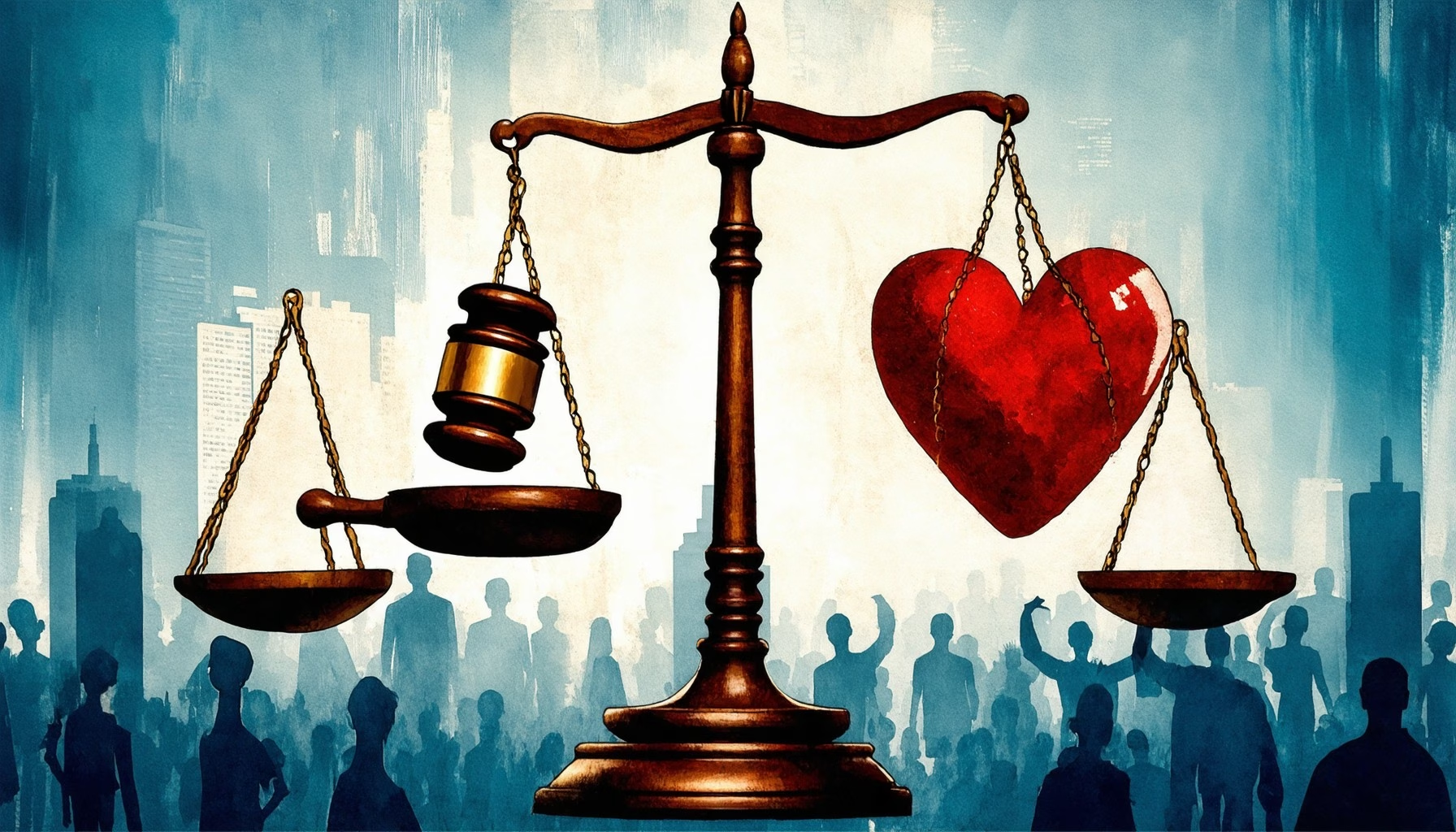Key Takeaways
- Understanding Your Rights: If you can’t afford a lawyer, you have the right to legal representation, including public defenders for criminal cases, ensuring fair legal counsel.
- Accessing Legal Aid: Various legal aid organizations offer free or low-cost services based on income, crucial for those in need of legal support.
- Pro Bono Services: Many attorneys provide pro bono work, allowing individuals without financial means to receive legal assistance at no cost.
- Eligibility Criteria: Legal aid eligibility often depends on income levels; those earning under $30,000 may qualify for assistance in multiple legal areas.
- Resources for Help: Utilize platforms like the Legal Services Corporation and American Bar Association to find local legal aid offices and pro bono programs.
In today’s complex legal landscape, many individuals find themselves asking, “What happens if you can’t afford a lawyer?” The reality is that navigating the legal system without proper representation can be daunting and overwhelming. Fortunately, there are options available for those who can’t afford an attorney. This article will explore essential insights into your rights, including the right to an attorney and the significance of legal counsel, as established by landmark cases like Gideon v. Wainwright. We will delve into the various forms of legal aid available, eligibility criteria, and how to access free legal services, particularly for low-income families in California. Additionally, we will address common questions such as “What do you call a person who cannot afford an attorney?” and provide practical tips on requesting pro bono legal assistance. By the end of this article, you will be equipped with the knowledge to understand your legal rights and the resources available to you, ensuring that you are not left without support when you need it most.
What do you call a person who cannot afford an attorney?
Understanding Your Rights: The Right to an Attorney
The Importance of Legal Representation
A person who cannot afford an attorney is often referred to as “indigent.” In legal contexts, being deemed indigent means that an individual has insufficient financial resources to hire private legal counsel. When a court identifies someone as indigent, they may appoint a private lawyer funded by the county or assign a public defender to represent the individual. This system ensures that the right to legal counsel, as guaranteed by the Sixth Amendment of the U.S. Constitution, is upheld, allowing individuals to receive fair representation in legal proceedings.
Exploring the Right to Legal Counsel
Public defenders are attorneys employed by the government to provide legal representation to those who cannot afford to pay for their own legal services. According to the American Bar Association, the criteria for determining indigence can vary by jurisdiction, but typically includes an assessment of income, assets, and overall financial situation. In many cases, individuals seeking legal aid can apply through local legal aid organizations, which may offer additional resources and support.
For more detailed information on legal aid and indigent defense, you can refer to resources from the National Legal Aid & Defender Association and the Legal Services Corporation, which provide comprehensive insights into the rights and resources available for those unable to afford legal representation.

Understanding Your Rights: The Right to an Attorney
When you find yourself in a situation where you can’t afford an attorney, it’s crucial to understand your rights regarding legal representation. The right to an attorney is a fundamental principle in the American legal system, ensuring that individuals have access to legal counsel, regardless of their financial situation. This section will explore the importance of legal representation and the specific rights you have when you cannot afford a lawyer.
The Importance of Legal Representation
Legal representation is vital for navigating the complexities of the legal system. Individuals who cannot afford an attorney often face significant challenges, especially in criminal cases. The landmark case Gideon v. Wainwright established that the right to an attorney is guaranteed by the Constitution. This means that if you can’t afford a lawyer, one will be appointed for you, ensuring that your rights are protected throughout the legal process.
Without proper legal representation, individuals may struggle to understand their rights or the implications of their legal situations. This can lead to unfavorable outcomes in court, making it essential to seek assistance through available resources. If you find yourself asking, “What if I can’t afford a lawyer?” know that there are options available, including public defenders and legal aid organizations that can provide the necessary support.
Exploring the Right to Legal Counsel
The right to legal counsel is not just a theoretical concept; it has practical implications for those in need. Here are some key points to consider:
- Public Defenders: If you are facing criminal charges and cannot afford a lawyer, you have the right to a public defender. These attorneys are appointed by the court to represent individuals who cannot afford private legal counsel.
- Legal Aid Organizations: Numerous non-profit organizations provide free or low-cost legal services to those who qualify based on income. These organizations can assist with various legal issues, including family law, housing, and immigration. You can find local legal aid offices through the Legal Services Corporation (LSC) website.
- Pro Bono Services: Many attorneys offer pro bono services, meaning they provide legal assistance without charging a fee. This is often done for individuals who cannot afford legal representation. The American Bar Association maintains directories of pro bono programs across the United States.
- Sliding Scale Fees: Some attorneys may offer sliding scale fees based on your income, making legal services more affordable.
- Law School Clinics: Many law schools have legal clinics where law students provide free or low-cost legal assistance under the supervision of licensed attorneys.
Understanding your rights and the resources available to you is essential if you find yourself in a situation where you can’t afford an attorney. For more information on accessing legal aid, you can visit this guide to learn how to qualify for legal aid and consult lawyers for free.
Legal Aid: Options for Those Who Can’t Afford an Attorney
When you find yourself in a situation where you can’t afford an attorney, it’s crucial to understand the resources available to you. Legal aid programs exist to ensure that individuals who cannot afford legal representation still have access to justice. These programs provide essential services that can help you navigate legal challenges without the burden of high attorney fees.
What is Legal Aid?
Legal aid refers to a range of services provided to individuals who cannot afford legal representation. These services may include free or low-cost legal advice, representation in court, and assistance with legal paperwork. Legal aid organizations are typically funded by government grants, private donations, and other sources, allowing them to offer support to those in need.
In many cases, if you can’t afford a lawyer, you may qualify for legal aid based on your income and the nature of your legal issue. For example, individuals earning up to $30,000 annually may qualify for legal representation in various cases, including criminal, family, and immigration matters. It’s essential to check with local legal aid offices for specific eligibility criteria and available services.
Free Attorney Services Available
There are several options for obtaining free attorney services if you can’t afford a lawyer. Many legal aid organizations offer pro bono services, where volunteer attorneys provide legal assistance at no cost. Additionally, some law schools have legal clinics where students, supervised by licensed attorneys, offer free legal services to the community.
To find free legal assistance, you can start by contacting organizations such as the Legal Services Corporation or visiting the American Bar Association website for resources. These platforms can connect you with local legal aid offices and pro bono programs that can help you with your legal needs.
What Happens if You Can’t Afford a Lawyer in the USA?
When individuals find themselves in legal trouble but can’t afford an attorney, it can lead to significant challenges. Understanding the implications of not having legal representation is crucial for anyone facing legal issues. The consequences can vary depending on whether the case is criminal or civil, but the underlying theme remains the same: access to justice is a fundamental right.
What Happens if You Can’t Afford a Lawyer in a Criminal Case?
In criminal cases, the right to an attorney is protected under the Sixth Amendment of the U.S. Constitution. If you can’t afford a lawyer, the court is obligated to appoint one for you. This principle was established in the landmark case Gideon v. Wainwright, which affirmed that individuals who cannot afford legal representation have the right to a public defender. This ensures that everyone, regardless of their financial situation, has access to legal counsel during criminal proceedings.
Without an attorney, defendants may struggle to navigate the complexities of the legal system, potentially leading to unfavorable outcomes. If you find yourself in a situation where you can’t afford a lawyer, it’s essential to communicate this to the court as soon as possible. They will guide you through the process of obtaining a public defender, ensuring your rights are protected.
What Happens if You Can’t Afford a Lawyer in a Civil Case?
In civil cases, the situation is different. There is no constitutional guarantee for free legal representation, which means that if you can’t afford a lawyer, you may have to represent yourself. This can be daunting, especially in complex legal matters such as family law, housing disputes, or employment issues. However, there are resources available to assist you.
Many states offer legal aid services that provide free or low-cost assistance to low-income individuals. These organizations can help you understand your rights and navigate the legal process. Additionally, you can access resources like the free legal aid hotline for 24/7 expert attorney consultation and support.
If you find yourself asking, “What if I can’t afford a lawyer?” remember that there are options available. Seeking help from legal aid organizations, utilizing self-help resources, and exploring pro bono services can provide the support you need to address your legal challenges effectively.

How to Ask for Pro Bono Work?
If you find yourself in a situation where you can’t afford a lawyer, seeking pro bono legal services can be a viable option. Pro bono work refers to legal services provided voluntarily and without charge by attorneys. Here are some effective strategies for requesting pro bono assistance:
Tips for Approaching Lawyers for Pro Bono Work
- Be Clear and Concise: When reaching out to attorneys, clearly explain your legal situation and why you need assistance. Providing a brief overview of your case can help lawyers understand your needs.
- Research Potential Lawyers: Look for attorneys who specialize in your area of need, whether it’s family law, criminal defense, or another field. Many law firms have pro bono programs, so check their websites or contact them directly.
- Utilize Bar Association Resources: State and local bar associations often have lists of attorneys who offer pro bono services. You can find valuable resources through the American Bar Association.
- Be Honest About Your Financial Situation: Clearly state your financial constraints. Lawyers are more likely to take on your case if they understand your inability to pay for legal services.
Understanding the Pro Bono Process
The pro bono process can vary depending on the attorney or organization you approach. Here’s what to expect:
- Initial Consultation: Many lawyers will offer a free initial consultation to assess your case. Use this opportunity to discuss your situation and determine if they can help.
- Documentation: Be prepared to provide documentation that supports your case and financial situation. This may include income statements, court documents, or any relevant correspondence.
- Follow-Up: If you don’t hear back after your initial contact, don’t hesitate to follow up. Persistence can demonstrate your commitment to resolving your legal issue.
- Explore Multiple Options: If one attorney cannot take your case, ask for referrals to other lawyers or organizations that might assist you.
For more information on accessing free legal resources, consider visiting this guide on qualifying for legal aid and consulting lawyers for free.
How to Ask for Pro Bono Work?
Requesting pro bono legal services can be a crucial step for individuals who can’t afford an attorney. Understanding how to approach this process effectively can significantly increase your chances of receiving the legal assistance you need. Here are some essential tips for asking for pro bono work:
Tips for Approaching Lawyers for Pro Bono Work
- Research the Firm’s Pro Bono Commitment: Before reaching out, familiarize yourself with the firm’s pro bono initiatives. Many firms have dedicated pages on their websites outlining their commitment to pro bono work, including the types of cases they handle and their overall philosophy. This information can help tailor your request.
- Contact the Pro Bono Coordinator: Identify and reach out to the individual responsible for the pro bono program at the firm. This could be a pro bono coordinator or a partner overseeing these efforts. A direct email or phone call can establish a personal connection and demonstrate your genuine interest.
- Prepare Your Case: Clearly articulate your legal needs and how they align with the firm’s pro bono focus. Provide relevant details about your situation, emphasizing any public interest aspects that may resonate with the firm’s values.
- Request a Meeting: Politely ask for a meeting to discuss your case further. This can be an opportunity to meet with associates and partners involved in pro bono work, allowing you to present your case in person and build rapport.
- Follow Up: If you do not receive a response within a week or two, consider sending a polite follow-up email. Persistence can show your commitment to seeking assistance.
- Utilize Resources: Explore platforms like Gov Guider, which can provide additional guidance on finding legal assistance and understanding the pro bono landscape.
Understanding the Pro Bono Process
The pro bono process can vary by firm and case type, but generally, it involves the following steps:
- Initial Consultation: Many firms will conduct an initial consultation to assess your case and determine if it fits their pro bono criteria.
- Case Acceptance: If the firm decides to take your case, they will assign an attorney who will work with you throughout the legal process.
- Ongoing Communication: Maintain open lines of communication with your attorney, providing any necessary documentation and updates regarding your situation.
- Feedback and Follow-Up: After your case is resolved, providing feedback can help the firm improve its pro bono services and assist future clients.
By following these steps, you can effectively navigate the process of requesting pro bono legal assistance, increasing your chances of receiving the help you need. For further insights, refer to resources from the American Bar Association, which offers extensive information on pro bono services and best practices.
Gideon v Wainwright: A Landmark Case
The case of Gideon v Wainwright is a pivotal moment in American legal history, establishing the fundamental right to an attorney for individuals who cannot afford legal representation. This landmark Supreme Court decision, rendered in 1963, reinforced the principle that the state must provide counsel to defendants in criminal cases who cannot afford a lawyer, ensuring that justice is accessible to all, regardless of financial status.
The Impact of Gideon vs Wainwright on Legal Rights
The ruling in Gideon v Wainwright significantly expanded the rights of defendants, affirming that the right to legal counsel is a constitutional guarantee under the Sixth Amendment. This case arose when Clarence Earl Gideon was charged with a felony in Florida and could not afford an attorney. He represented himself at trial and was convicted. Gideon appealed his conviction to the Supreme Court, which unanimously ruled that the right to counsel is a fundamental right essential to a fair trial. This decision has since influenced numerous cases and legal standards across the United States, ensuring that individuals who cannot afford an attorney have access to legal representation.
How Gideon Wainwright Established the Right to an Attorney
The Gideon vs Wainwright case set a precedent that has shaped the legal landscape in America. It clarified that if you can’t afford a lawyer, one will be appointed for you, thereby reinforcing the notion that justice should not be contingent upon one’s financial means. This ruling has led to the establishment of public defender systems in many states, providing legal assistance to those who qualify. As a result, the case has become a cornerstone in discussions about the right to an attorney, highlighting the ongoing need for legal aid services and the importance of ensuring that all individuals, regardless of income, can navigate the legal system effectively.




